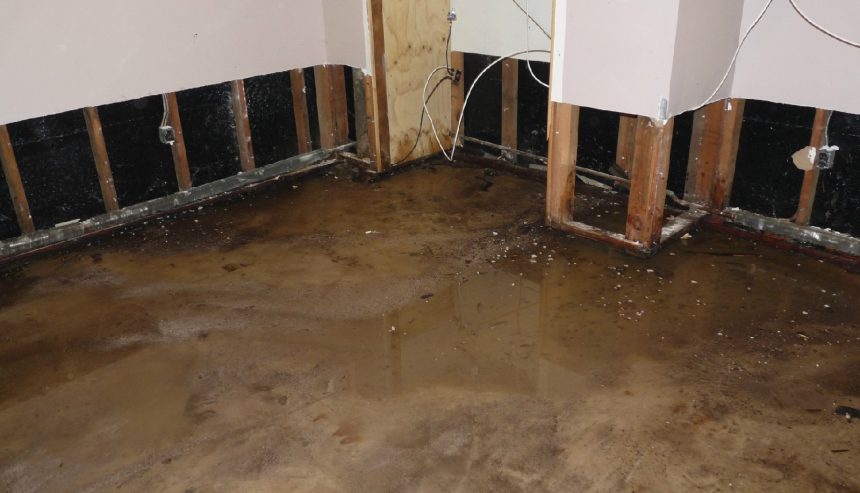Water damage in Marysville, WA can be one of the most costly and stressful issues for homeowners and business owners. With its rainy climate and seasonal storms, this region is particularly susceptible to leaks, flooding, and moisture-related problems. However, with proactive measures, you can safeguard your property from potential water damage and avoid expensive repairs.
In this blog post, we will discuss essential tips for preventing water damage and ensuring your home or business remains safe and dry.

1. Maintain Your Gutters and Downspouts
One of the simplest yet most effective ways to prevent water damage is by keeping your gutters and downspouts clean and in good condition. When gutters become clogged with leaves, dirt, or debris, they can overflow, leading to water seeping into your foundation, walls, or roof.
How to Maintain Your Gutters:
- Clean your gutters at least twice a year, especially in the fall and spring.
- Ensure downspouts extend at least 3-5 feet away from your foundation to direct water safely away from the property.
- Inspect for signs of wear, sagging, or cracks and make necessary repairs immediately.
2. Inspect Your Roof Regularly
Your roof is your first line of defense against water intrusion. Even a small leak can lead to significant water damage, mold growth, and structural issues if left unattended.
Roofing Maintenance Tips:
- Schedule professional roof inspections at least once a year.
- Look for missing, curled, or damaged shingles and replace them promptly.
- Check for signs of water stains or mold growth in your attic.
- Ensure flashing around chimneys, vents, and skylights is properly sealed.
3. Seal Windows and Doors
Gaps or cracks around windows and doors can allow water to seep in during heavy rain or storms. Ensuring these areas are well-sealed can prevent potential leaks.
How to Keep Windows and Doors Sealed:
- Apply weatherstripping or caulking around windows and doors to prevent water penetration.
- Inspect for rotting or deteriorating frames and replace them if needed.
- Install storm doors or impact-resistant windows for added protection.
4. Check Your Plumbing System
Leaky pipes, clogged drains, and faulty plumbing fixtures can cause extensive water damage over time. Regular inspections and maintenance can help you identify problems before they become major disasters.
Plumbing Maintenance Tips:
- Inspect under sinks, around toilets, and behind appliances for signs of leaks.
- Check your water heater for rust, corrosion, or unusual noises, which may indicate a potential failure.
- Avoid using chemical drain cleaners that can erode pipes; instead, opt for professional drain cleaning services.
- Know the location of your main water shut-off valve so you can quickly turn off the water supply in an emergency.
5. Install a Sump Pump
A sump pump can be a lifesaver, especially if your home or business is prone to basement flooding. It automatically pumps out excess water, preventing water buildup and damage.
Sump Pump Maintenance:
- Test your sump pump regularly by pouring water into the sump pit and ensuring it activates properly.
- Keep the pit clean and free of debris to prevent clogs.
- Have a battery backup system in case of power outages during storms.
6. Prevent Water Damage from Landscaping
Improper landscaping can lead to water pooling around your foundation, increasing the risk of basement leaks and structural issues.
Landscaping Tips:
- Slope your yard away from the foundation to direct water flow away from your property.
- Avoid planting trees or shrubs too close to the house, as roots can interfere with underground pipes.
- Install French drains or swales to help redirect excess water away from the building.
7. Monitor Indoor Humidity Levels
High humidity can lead to condensation, mold growth, and water damage inside your home or business.
How to Control Humidity:
- Use dehumidifiers in damp areas like basements, crawl spaces, and bathrooms.
- Ensure proper ventilation by using exhaust fans in kitchens and bathrooms.
- Fix any leaks in your HVAC system and clean air ducts regularly.
8. Invest in Water Leak Detection Devices
Smart technology can help prevent water damage by alerting you to potential leaks before they become major problems.
Benefits of Water Leak Detectors:
- They can detect leaks in real time and send alerts to your phone.
- Some models automatically shut off the water supply to prevent extensive damage.
- Place them near water heaters, washing machines, under sinks, and in basements for maximum protection.
9. Prepare for Storms and Heavy Rain
Since Marysville, WA, experiences heavy rain and occasional storms, being prepared can minimize the risk of water damage.
Storm Preparation Tips:
- Ensure your sump pump is functional before a major storm.
- Check your roof and gutters for any vulnerabilities before the rainy season.
- Have an emergency kit with essentials like flashlights, batteries, and a first-aid kit in case of power outages.
- Consider flood insurance if you live in a high-risk area.
Conclusion
Water damage in Marysville, WA can be devastating, but with proper preventive measures, you can protect your home or business from costly repairs and potential health hazards. By maintaining your gutters, roof, plumbing, and landscaping, as well as investing in leak detection technology and sump pumps, you can reduce the risk of water damage significantly.



